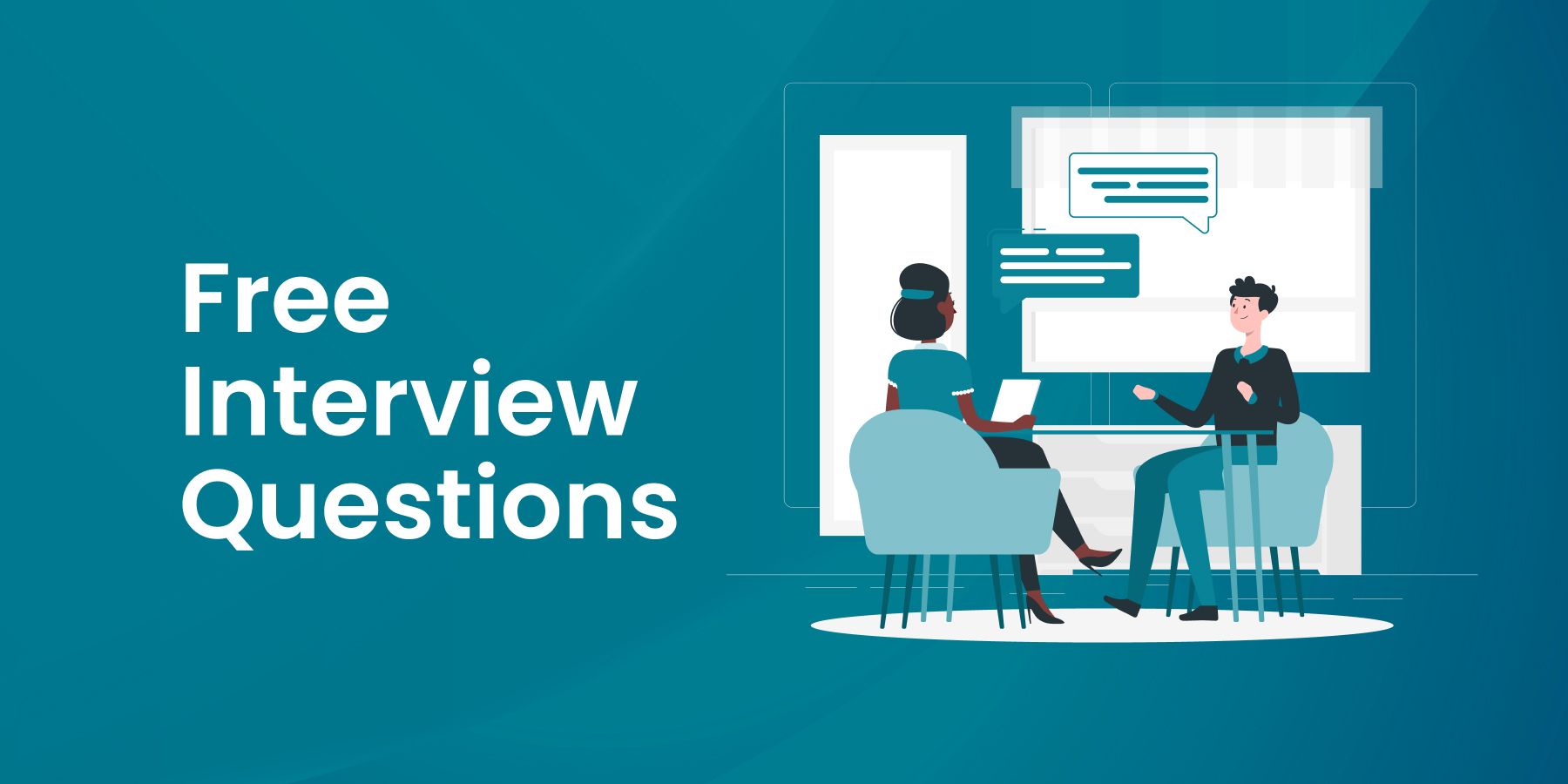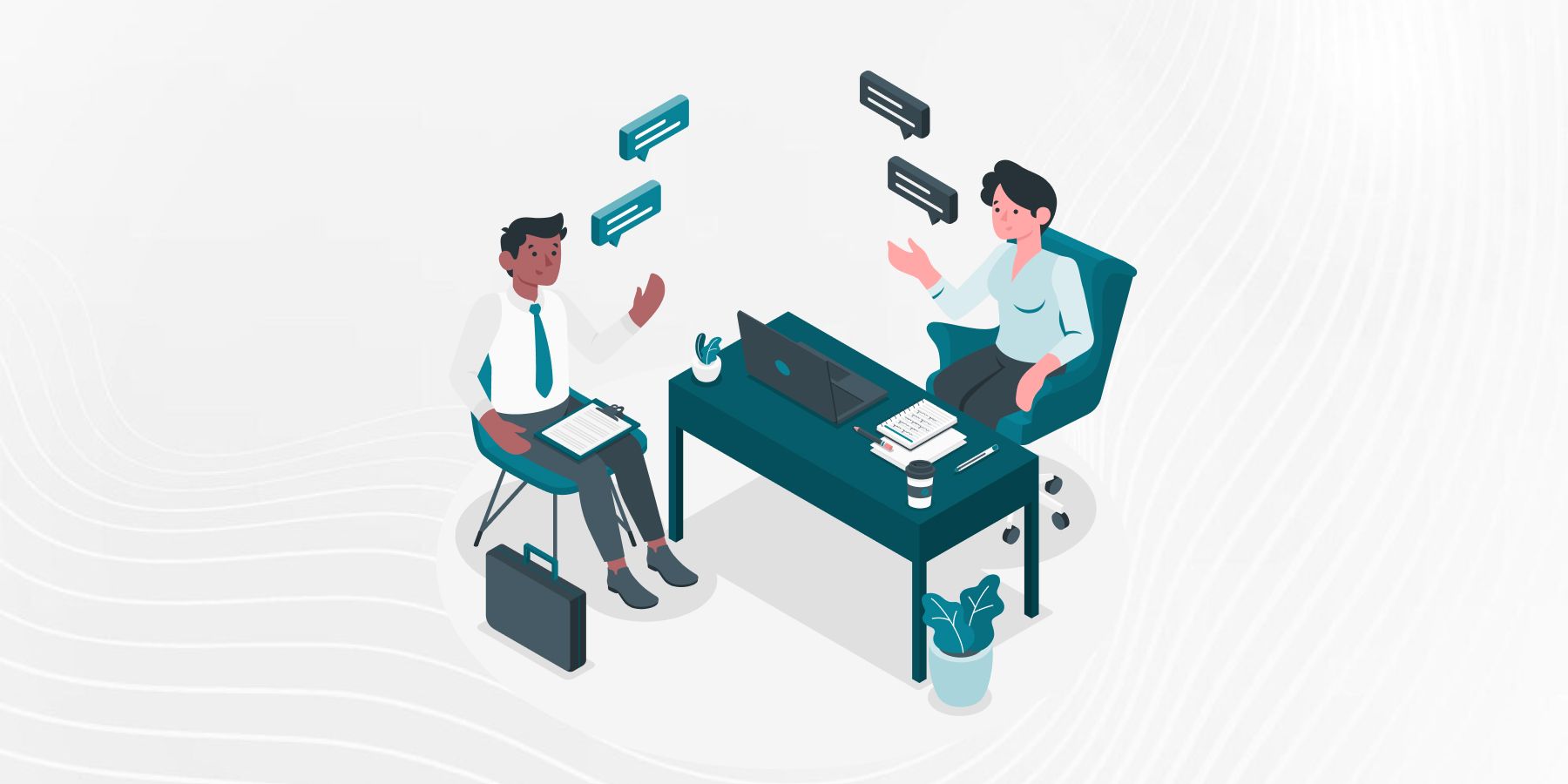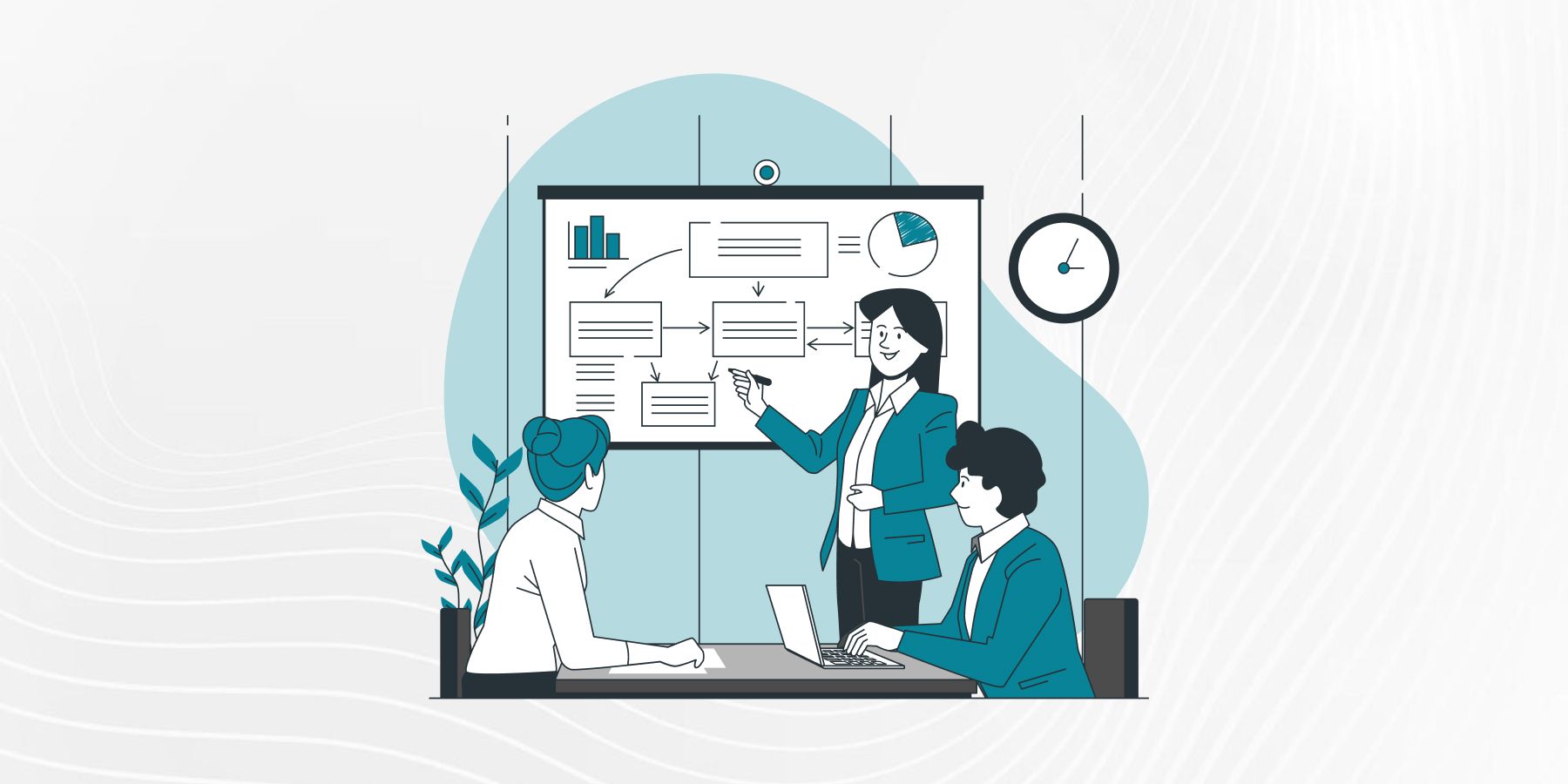Free Interview Questions – Your Ultimate Guide to Ace Interviews
Free Interview Questions – Your Ultimate Guide to Ace Interviews

Navigating a job interview can be a daunting experience, but preparation is the key to transforming nerves into confidence. Whether you’re meeting a hiring manager for the first time or tackling multiple rounds of interviews, understanding what to expect can significantly boost your chances of success. This is why interview preparation is not just recommended — it’s essential.
One of the most important aspects of interview readiness is knowing the types of questions you may be asked and, just as importantly, the questions you should ask in return. Anticipating common interview questions, preparing answers that showcase your strengths, and planning thoughtful questions to engage the interviewer can set you apart from other candidates. It’s more than just responding to inquiries; it’s about demonstrating your value and enthusiasm for the role.
This guide is designed to help you master the art of the interview with a collection of free, expertly crafted resources. From decoding tricky behavioral interview questions to curating impactful questions to ask at the end of an interview, you’ll find everything you need to approach your next interview with confidence and clarity. Let’s dive in and set the stage for your success!
Understanding the Basics of Job Interview Questions
What Are Interview Questions?
Interview questions are a structured set of queries designed to assess a candidate's qualifications, skills, personality, and fit for a specific role. Employers use these questions to gather insights into your professional background, work ethic, problem-solving abilities, and future potential. They serve as a critical tool for decision-making, allowing hiring managers to evaluate whether you're the right person for the job.
Purpose of the Hiring Process:
- Evaluate technical and interpersonal skills.
- Gauge alignment with the company’s values and culture.
- Predict future performance based on past experiences.
Types of Interview Questions:
- Screening Questions:
- Typically asked during initial interviews or phone screenings.
- Focus on basic qualifications, availability, and interest in the role.
- Example: "What interests you about this position?"
- In-Depth Interview Questions:
- Explored during face-to-face or virtual interviews.
- Dive into technical expertise, behavioral responses, and problem-solving capabilities.
- Example: "Describe a challenging project you led and how you managed it."
Why Preparing for Common Interview Questions Is Key
Insight Into Employer Expectations:
- Understanding the typical questions helps you anticipate what the interviewer is looking for.
- Employers often focus on key areas such as teamwork, leadership, adaptability, and motivation.
Benefits of Being Well-Prepared:
- Boosts Confidence: Familiarity with questions reduces anxiety and allows for more composed responses.
- Showcases Your Value: Well-prepared answers highlight your unique strengths and how they align with the role.
- Saves Time: Practicing responses enables you to deliver concise and impactful answers, leaving room for meaningful discussions.
By mastering the basics of interview questions, you’re laying a solid foundation for a successful interview experience. Whether it’s a casual phone screening or an intensive panel interview, knowing what to expect will empower you to put your best foot forward.

What are the 7 most Common Interview Questions and Answers?

Preparing for the most frequently asked interview questions can give you a significant advantage. Below is a detailed list of the 7 most common interview questions, along with sample answers and tips to help you customize them for your situation.
1. Tell me about yourself.
This question often serves as an icebreaker. It’s your chance to set the tone and showcase your professional background.
Sample Answer: "I’m a marketing specialist with over 5 years of experience helping brands increase their digital presence. In my current role at XYZ Company, I led a campaign that boosted online engagement by 35% in just 6 months. I’m passionate about creating innovative strategies and love working in collaborative environments. Outside of work, I enjoy attending industry workshops to stay updated on the latest trends."
Tips to Customize:
- Focus on your professional achievements and relevant skills.
- Keep your answer concise and structured (past, present, future).
- Avoid personal details unless they relate to the job.
2. What are your strengths and weaknesses?
This question assesses self-awareness and your ability to improve.
Sample Answer (Strengths): "My greatest strength is my ability to adapt quickly to changing environments. For example, when my team switched to remote work, I spearheaded the adoption of new collaboration tools, which increased productivity by 20%."
Sample Answer (Weaknesses): "One area I’m working on is delegating tasks more effectively. I’ve realized that trusting my team to handle certain responsibilities allows me to focus on strategic planning, and I’m actively improving in this area."
Tips to Customize:
- Choose strengths that align with the job requirements.
- When discussing weaknesses, emphasize your efforts to improve.
3. Why do you want to work here?
This question evaluates your interest in the company and role.
Sample Answer: "I admire XYZ Company’s commitment to innovation and its impact on the tech industry. The opportunity to contribute to your upcoming product launch excites me, especially since it aligns with my experience in project management and passion for driving impactful results."
Tips to Customize:
- Research the company’s mission, values, and recent projects.
- Tie your skills and goals to what the company stands for.
4. Tell me about a challenge you faced and how you handled it.
Employers want to gauge your problem-solving and resilience.
Sample Answer: "In my previous role, I was tasked with delivering a major project under a tight deadline after a key team member resigned. I quickly restructured the workflow, delegated tasks effectively, and worked overtime to ensure we met the deadline. The project was successfully completed, and our client praised the team’s dedication."
Tips to Customize:
- Use the STAR method (Situation, Task, Action, Result).
- Focus on challenges relevant to the job you’re applying for.
5. Where do you see yourself in 5 years?
This question tests your ambition and alignment with the company.
Sample Answer: "In five years, I see myself leading a team of professionals in [industry/role] and contributing to strategic decisions that drive growth. I believe the skills I’ll develop at XYZ Company will help me achieve this vision while delivering value to your organization."
Tips to Customize:
- Align your goals with the company’s growth opportunities.
- Avoid overly ambitious or vague answers.
6. Why should we hire you?
This question is your opportunity to sell yourself.
Sample Answer: "My background in data analytics and my proven ability to translate insights into actionable strategies make me a strong fit for this role. At ABC Company, I increased sales by 15% by identifying customer trends, and I’m excited to bring the same value to your team."
Tips to Customize:
- Highlight your unique skills and achievements.
- Focus on how you’ll add value to the company.
7. Do you have any questions for us?
This question assesses your engagement and curiosity about the role.
Sample Answer: "Yes, I have a few questions. Can you tell me more about the team I’ll be working with? What are the biggest challenges the company is currently facing, and how does this role contribute to overcoming them?"
Tips to Customize:
- Prepare thoughtful questions about the role, company culture, or growth opportunities.
- Avoid questions that could easily be answered through research.
Tips for Customizing Your Answers
- Know the Job Description: Tailor your responses to the skills and qualities the employer values most.
- Research the Company: Incorporate the company’s mission, values, and recent projects into your answers.
- Practice, Don’t Memorize: Rehearse your answers but leave room for flexibility to sound natural.
- Use Specific Examples: Quantify your achievements wherever possible to make your responses compelling.
- Stay Positive: Frame challenges and weaknesses as opportunities for growth.
With these answers and tips, you’ll be well-prepared to tackle the most common interview questions confidently!
Exploring Behavioral Interview Questions

Behavioral interview questions are designed to assess how you’ve handled situations in the past to predict your future performance. Unlike general or hypothetical questions, these require you to provide real-life examples, offering insight into your problem-solving skills, decision-making process, and interpersonal abilities.
Employers use behavioral questions to evaluate:
- Your ability to adapt to challenges.
- Your approach to teamwork and collaboration.
- Your effectiveness in achieving results under varying circumstances.
Focus on the STAR Technique
The STAR technique is a structured approach to answering behavioral interview questions. It helps you provide clear, concise, and compelling responses by breaking your answers into four key components:
- Situation: Describe the context or challenge you faced.
- Task: Explain your specific responsibility or objective.
- Action: Detail the steps you took to address the situation.
- Result: Share the outcome of your actions, ideally with measurable results.
By structuring your answers this way, you can deliver memorable and impactful responses. If you wish to explore more behavioral interview questions, check out our blog on - Behavioural Interview Questions You Must Ask In An Interview (Best Answers Included)
Questions to Ask During an Interview
Asking thoughtful questions during an interview is more than just a formality—it’s an opportunity to demonstrate your genuine interest in the role and the company. It shows that you’ve done your research and are invested in understanding how you can contribute to their success. Additionally, it helps you assess whether the role and organization align with your career goals and work style.
Benefits of Asking Questions:
- Engage the Interviewer: It fosters a two-way conversation, making the interview feel more like a dialogue than a grilling session.
- Demonstrate Preparedness: Well-crafted questions reflect that you’ve taken the time to understand the company and its needs.
- Gain Insights: They provide clarity about the role, expectations, and company culture, helping you make an informed decision if offered the job.
Examples of Good Interview Questions to Ask
- Can you tell me more about the team I’d be working with?
- What are the biggest challenges facing the company right now?
- How do you measure success in this role?
- What does a typical day look like in this role?
- What opportunities are there for professional development or career growth?
- Can you describe the company culture?
- What are the next steps in the hiring process?
Asking thoughtful questions during an interview is a crucial step in showcasing your enthusiasm for the role and understanding the company’s dynamics. It not only highlights your preparation and interest but also helps you gather essential information to determine if the position aligns with your goals and values. By crafting and asking meaningful questions, you transform the interview into a two-way conversation, leaving a lasting impression on the interviewer.
Remember, the right questions can set you apart from other candidates and bring you one step closer to landing your dream job. If you’re looking for even more inspiration on good interview questions to ask for an interview, be sure to check out our blog for a comprehensive guide to mastering the art of inquiry.

Questions to Ask at the End of an Interview

The final moments of an interview are your last opportunity to leave a positive and memorable impression on the interviewer. Asking thoughtful, strategic questions at the end demonstrates your enthusiasm for the role, your interest in the company, and your ability to engage in meaningful dialogue. It’s also a chance to clarify any uncertainties and reinforce your qualifications for the position.
Examples of Questions to Ask at the End of an Interview
- What’s the next step in the hiring process?
This shows that you’re eager to move forward and stay informed about the timeline.
- How would you describe the company culture?
This question helps you understand the work environment and whether it aligns with your values.
- Is there anything else you’d like to know about my qualifications?
A great way to ensure you’ve addressed all their concerns and highlighted your suitability for the role.
By ending the interview with thoughtful questions, you show initiative and engagement, leaving a lasting positive impression. For more ideas and examples, visit our detailed guide on questions to ask at the end of an interview to perfect your interview strategy.
A Deep Dive into Job Interview Questions
Understanding the types of questions you might face in an interview is critical to preparing effectively. Each type serves a different purpose and evaluates specific aspects of your suitability for the role. Let’s explore these categories and how you can approach them to ensure a stellar performance.
Categorizing Job Interview Questions
- Technical Questions (Role-Specific):
- These questions assess your expertise in the specific skills required for the job.
- Example: “Can you explain the process of debugging a complex software issue?”
- How to Prepare:
- Review the job description to identify key technical requirements.
- Practice technical problems or case studies relevant to the role.
- Stay updated on industry-specific tools, software, or methodologies.
- Behavioral Questions (Past Experiences):
- Focus on how you’ve handled situations in the past to predict your future behavior.
- Example: “Describe a time you managed a conflict in your team.”
- How to Prepare:
- Use the STAR method (Situation, Task, Action, Result) to structure your answers.
- Reflect on past experiences where you demonstrated key skills like teamwork, leadership, or problem-solving.
- General Questions (Background and Goals):
- Designed to learn more about your personality, values, and career aspirations.
- Example: “What motivates you to perform well at work?”
- How to Prepare:
- Be ready to articulate your goals and how they align with the company’s mission.
- Practice speaking confidently about your background and achievements.
How to Prepare for Each Type of Question
- Do Your Research: Understand the company’s needs and tailor your answers to the role.
- Practice Out Loud: Simulate the interview environment to refine your responses.
- Use Examples: Wherever possible, back your answers with specific examples to make them compelling.
- Stay Authentic: Answer honestly while ensuring your responses highlight your strengths.
Streamline Your Preparation with the HireQuotient Free Interview Question Generator
To make your preparation even more effective, try the HireQuotient Free Interview Question Generator. This tool provides customized questions based on the job role and industry, helping you practice for any scenario. Whether it’s technical, behavioral, or general questions, you’ll find a comprehensive list tailored to your needs.
By categorizing and preparing for these types of job interview questions, you’ll be equipped to tackle any curveball an interviewer throws your way. Use resources like HireQuotient’s tool to ensure you’re fully prepared and confident for your next interview!

Tips for Crafting Good Interview Questions

Asking good questions during an interview not only demonstrates your preparedness but also provides valuable insights into the role and organization. Crafting thoughtful questions ensures that you make a lasting impression while gaining clarity about the position.
What Makes a Question “Good”?
A good interview question reflects your genuine interest in the role and helps you gather relevant information to make informed decisions. Here are the key characteristics of a strong question:
- Relevance to the Role:
- Good questions focus on specific aspects of the job, team dynamics, or expectations.
- Example: “What qualities do you think are most important for success in this position?”
- Insight into Company Values:
- Thoughtful questions uncover how the company operates and whether its values align with yours.
- Example: “How does the company support professional development and employee growth?”
- Clarity and Intent:
- Well-crafted questions are clear, and concise, and show you’ve done your research.
- Avoid asking questions that can be easily answered through a quick glance at the company website.
Examples of Well-Thought-Out Interview Questions to Ask
- About the Role:
- “Can you describe the immediate priorities for this position in the first three months?”
- “What does success look like for someone in this role?”
- About the Team:
- “Can you tell me more about the team I’ll be working with?”
- “What’s the team dynamic like, and how do members typically collaborate?”
- About the Company:
- “What are the company’s biggest goals over the next year, and how does this role contribute to them?”
- “Can you share an example of how the company demonstrates its core values in daily operations?”
- About Growth Opportunities:
- “What opportunities for learning and development are available to employees?”
- “How do performance evaluations work, and how are promotions decided?”
- About the Hiring Process:
- “Is there anything about my qualifications that you’d like me to elaborate on?”
- “What’s the next step in the hiring process?”
By crafting thoughtful and relevant questions, you not only engage the interviewer but also position yourself as an inquisitive and proactive candidate. These questions demonstrate that you’ve considered the role deeply and are eager to understand how you can contribute meaningfully to the organization.
Interview Tips to Ace the Process

Acing an interview requires more than just showing up with a polished resume. It’s about demonstrating your preparedness, confidence, and ability to align your skills with the company’s needs. Below are some essential tips to help you leave a lasting impression.
Research the Company Thoroughly: Dive deep into the company’s website, mission statement, recent news, and industry position. Understand their products, services, and culture to tailor your responses.
Practice Answers to Common Interview Questions: Prepare for frequently asked questions like “Tell me about yourself” and “What are your strengths and weaknesses.” Use tools like the HireQuotient Interview Question Generator for customized practice questions.
Plan Your Own Questions to Ask in an Interview: Prepare a list of thoughtful questions about the role, team, and company. Example: “What opportunities for growth does this role offer?”
Advanced Tips
- Using Storytelling to Make Your Answers Memorable:
- Frame your responses as stories using the STAR method (Situation, Task, Action, Result).
- Example: Instead of saying “I’m a team player,” share a story about how you successfully collaborated on a challenging project.
- Avoiding Clichés and Keeping Answers Genuine:
- Stay away from overused phrases like “I’m a perfectionist” or “I work too hard.”
- Provide authentic answers that reflect your unique strengths and areas of growth.
By combining thorough preparation with these advanced techniques, you can confidently navigate your interview and stand out as a well-rounded candidate. Remember, interviews are as much about your evaluation of the company as they are about the company assessing you. Make the most of this opportunity to showcase your skills, curiosity, and alignment with the role.

Conclusion
Interviews are pivotal moments in your career journey, and preparation is the key to turning them into opportunities for success. Confidence stems from knowing what to expect, how to present your strengths, and which questions to ask to make a lasting impression. With thoughtful preparation, you can approach any interview with clarity and composure.
This guide provides you with a solid foundation to master the art of interviewing, from understanding common questions to crafting your own. Use it as a starting point to refine your skills and showcase your best self in every conversation. Remember, each interview is a learning experience that brings you closer to your goals. Good luck!
